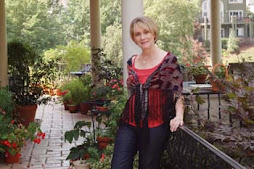
The term witness is used by the apostles to talk about the disciples that witnessed Jesus’ acts, his teachings, his execution, and then his resurrection. Before Christ died, the term crops up in the Bible under false witness, when lies were told about him. In the Book of Acts, Peter led the apostles to select a replacement for Judas, a guy named Matthias who had been around with them all and knew Christ, witnessing his resurrection. It was important, Peter thought, that God’s first road crew testify about having seen the Lord and witnessed the fact that there was no doubt that he really was God’s Son. It was like a massive whisper campaign that, over time, suffered change under the imperfect messengers.
When I first said yes to living for Jesus, the term witness meant that you needed to go out and “witness” to your friends. The word was not a noun but a verb, a bit of Christianese spread over the salvation message; to a new believer, though, an intimidating obligation. Classes sprang up teaching Christians how to “witness” (rather than “be a witness”).
But it was such a filter for me. A leader says to me, “You need to ‘witness’ to the lost, to the unsaved, as if faith requires an initiation and an awkwardly harnessed new initiate.
The apostles were such a super-charged bunch. They were the original twelve, the eyewitness gang of the birth of redemption. They performed acts of faith, (thusly named the Book of Acts) sharing what they had with others, telling how they lived before Christ changed them, raising people from the dead, laying hands on the sick to see God heal them, and telling their stories to others.
But how do I succeed like the early church believers in sharing faith without hooks and device? It all boils down to the relationships they sought. They went out of their way to meet people that were different from them, the tattooed and pierced folks, the drinkers, the loose women and perverse men, the banker and the CEO. They started by crossing the threshold of the next door neighbor and then progressed to more distant boundaries. Then they engaged others in what was considered a new philosophy, listening even if they didn’t agree. They started using terms like “brother” and “sister” because that is how they felt about the people they were meeting, people who were once strangers, divided by differences, and now brought together by a shared love of Jesus. It was like finding new family members all resonating the same inward call. While the Book of Acts is story in a hurry, we have to remember that for the apostles to start calling people brother and sister meant that a relationship had formed. And that took time.
Being a witness is a noun. It is a state of being, the butterfly out of the cocoon. A natural birth. Love is the verb. We start with something like food and a get-together so that neighbors start trusting us and seeing us as something besides that woman that gets up at a ridiculous hour on Sundays hauling a twenty-pound Bible out to her car. It’s not me lording my will and words over another, but a shared mutuality. We arrange play dates with our kids, bowling nights, or that insane game called Bunco. We laugh together and when tragedy strikes, share tears and support. Then they begin to see us as a human that is touching them in meaningful ways. And we start to really, really, really love them. We invite them to come to our small group to meet new friends and they think about it because a relationship has formed. They’re a little suspicious perhaps, but they’ve seen so much else through a filter. It could be that it’s going to take time for them to trust a person of faith and to know that you’re not trying to sell them something. Without a canned speech or a heavy-handed close, we’ve been a witness of God’s relational power in our lives that has taught us our need for others.
When I first said yes to living for Jesus, the term witness meant that you needed to go out and “witness” to your friends. The word was not a noun but a verb, a bit of Christianese spread over the salvation message; to a new believer, though, an intimidating obligation. Classes sprang up teaching Christians how to “witness” (rather than “be a witness”).
But it was such a filter for me. A leader says to me, “You need to ‘witness’ to the lost, to the unsaved, as if faith requires an initiation and an awkwardly harnessed new initiate.
The apostles were such a super-charged bunch. They were the original twelve, the eyewitness gang of the birth of redemption. They performed acts of faith, (thusly named the Book of Acts) sharing what they had with others, telling how they lived before Christ changed them, raising people from the dead, laying hands on the sick to see God heal them, and telling their stories to others.
But how do I succeed like the early church believers in sharing faith without hooks and device? It all boils down to the relationships they sought. They went out of their way to meet people that were different from them, the tattooed and pierced folks, the drinkers, the loose women and perverse men, the banker and the CEO. They started by crossing the threshold of the next door neighbor and then progressed to more distant boundaries. Then they engaged others in what was considered a new philosophy, listening even if they didn’t agree. They started using terms like “brother” and “sister” because that is how they felt about the people they were meeting, people who were once strangers, divided by differences, and now brought together by a shared love of Jesus. It was like finding new family members all resonating the same inward call. While the Book of Acts is story in a hurry, we have to remember that for the apostles to start calling people brother and sister meant that a relationship had formed. And that took time.
Being a witness is a noun. It is a state of being, the butterfly out of the cocoon. A natural birth. Love is the verb. We start with something like food and a get-together so that neighbors start trusting us and seeing us as something besides that woman that gets up at a ridiculous hour on Sundays hauling a twenty-pound Bible out to her car. It’s not me lording my will and words over another, but a shared mutuality. We arrange play dates with our kids, bowling nights, or that insane game called Bunco. We laugh together and when tragedy strikes, share tears and support. Then they begin to see us as a human that is touching them in meaningful ways. And we start to really, really, really love them. We invite them to come to our small group to meet new friends and they think about it because a relationship has formed. They’re a little suspicious perhaps, but they’ve seen so much else through a filter. It could be that it’s going to take time for them to trust a person of faith and to know that you’re not trying to sell them something. Without a canned speech or a heavy-handed close, we’ve been a witness of God’s relational power in our lives that has taught us our need for others.








